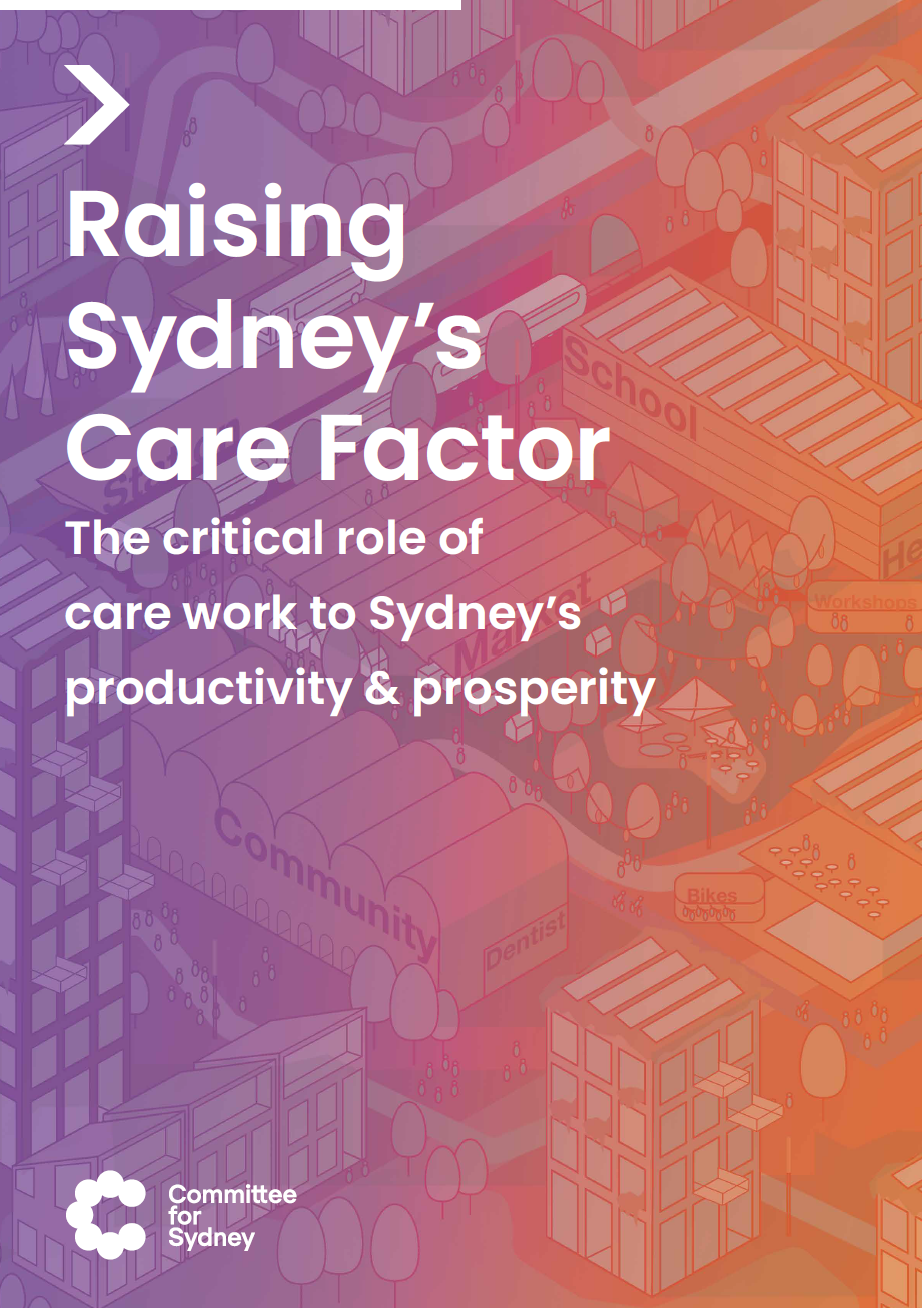Overview
Imagine a Sydney where care is recognised as essential infrastructure, as vital as housing, transport or energy.
Where every child, parent, worker, elder and person with a disability is supported, as well as the people who care for them. Where everyone, regardless of gender, contribute equally, and carers – paid and unpaid – are valued, fairly paid, and respected. Where families who choose to, can afford to have children without sacrificing their career or wellbeing. Where housing and transport make care accessible and easy.
Now consider the alternative – a city where care is priced out, and carers leave at increasing rates.
An ageing population, a declining birthrate, a housing crisis, climate change, a loneliness epidemic and the rising cost of living are colliding with long-standing and stubborn gender, economic, spatial and racial inequalities across our city.
If we do nothing, carers will burn out, workers will remain trapped in insecure, low-paid jobs, and people with disability and an estimated 60,000 older people will go without support. Families will be forced to step back from the workforce to fill the gaps left by formal care, with long-term costs for productivity and economic participation. Families will continue to delay or forgo having children because housing and childcare are unaffordable and unpaid care falls unevenly. Put simply: demographic decline, deeper divides and growing strain on the next generation.
Recommendations
If Sydney fails to raise the care factor, the costs will be profound. But if we act, the rewards are significant: higher productivity, greater gender equity, stronger communities and long-term savings across health and social spending.
This report sets out a roadmap for change, identifying six priority areas where reforms can transform how Sydney supports care in our workplaces, homes, neighbourhoods and public policies.
- Shift the narrative: make care visible, valued and shared – recognise unpaid carers, integrate formal and informal care, and challenge gendered stereotypes.
- Futureproof the care workforce – provide paid training, create career pathways, ensure fair pay, and deliver flexible supports for unpaid carers.
- Simplify access to care – establish local care navigators, streamline aged and home care pathways, and expand childcare access for all.
- Design cities and places that enable care and connection – deliver affordable and adaptable housing, improve transport and street design for carers, and embed health services in communities.
- Optimise tax and regulation for a productive care economy – adopt fairer measures of productivity, streamline rules, and reform tax to unlock housing mobility and fund sustainable care.
- Harness data, technology and innovation to strengthen the system – invest in telehealth, expand assistive technology, coordinate data, and apply ethical AI.
